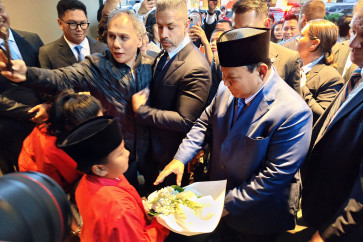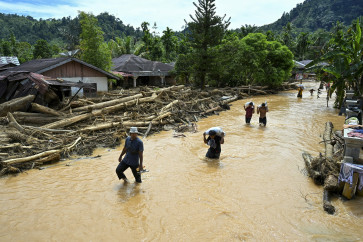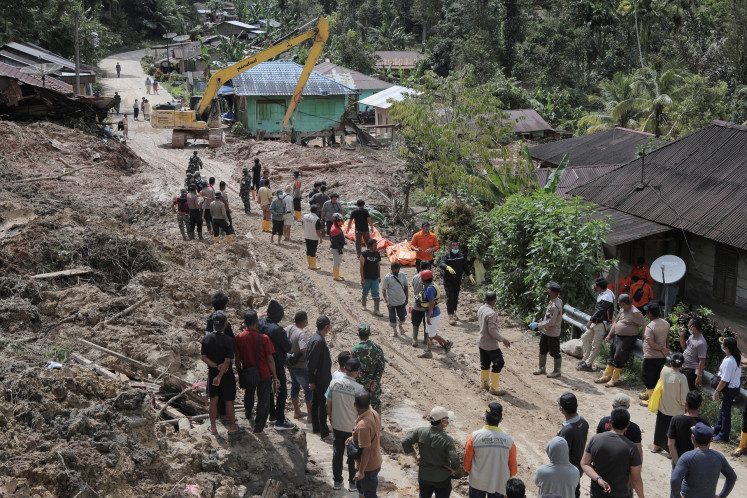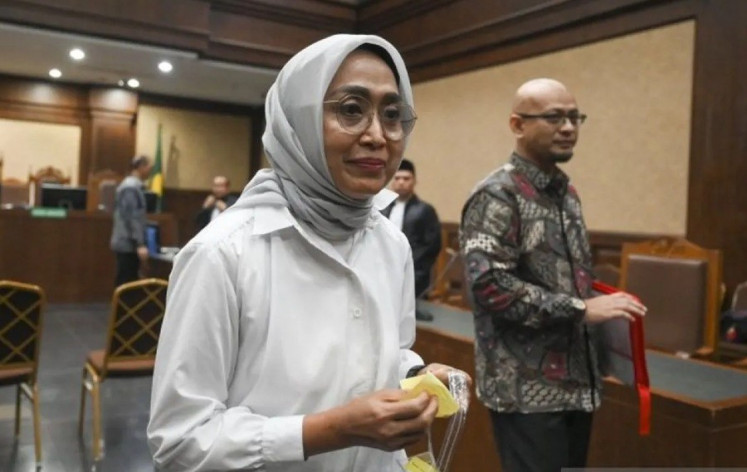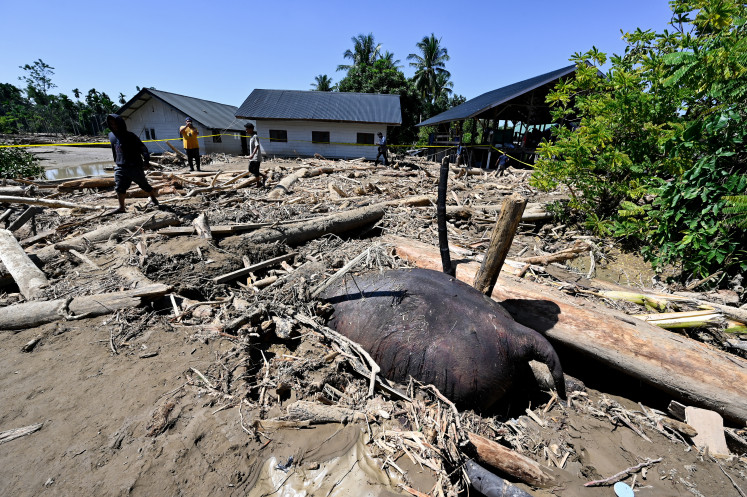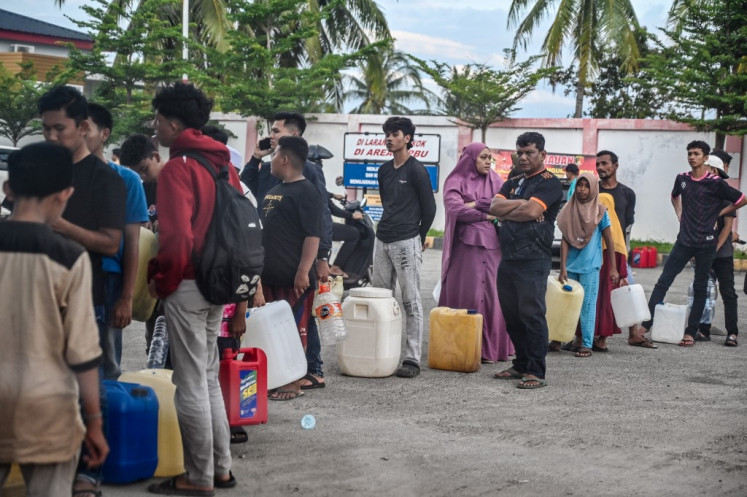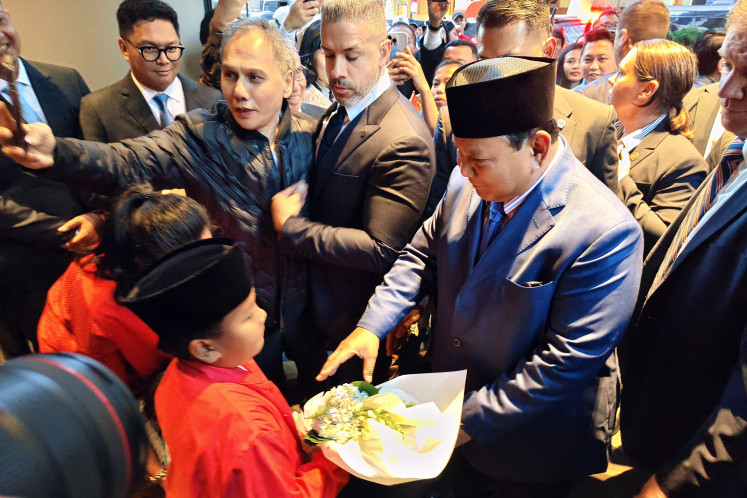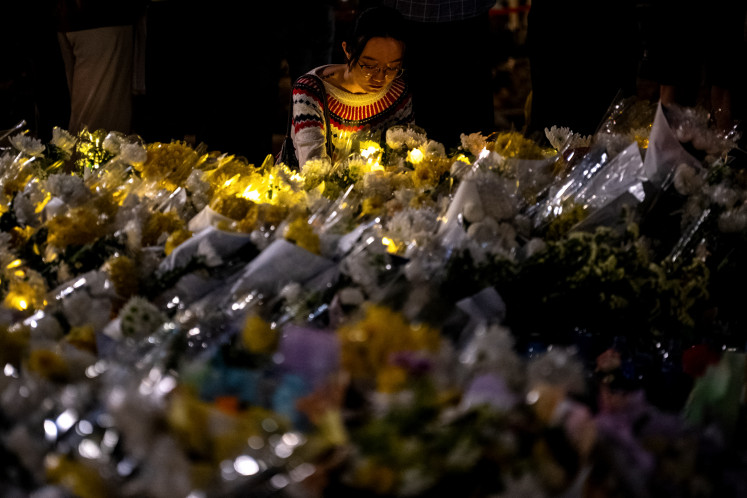Popular Reads
Top Results
Can't find what you're looking for?
View all search resultsPopular Reads
Top Results
Can't find what you're looking for?
View all search resultsWorking together toward a higher calling
Any form of demonstration by citizens in which NGOs participate, be it against flawed public policies or projects having severe environmental or social impact, is commonly sanctioned as fomenting social unrest.
Change text size
Gift Premium Articles
to Anyone
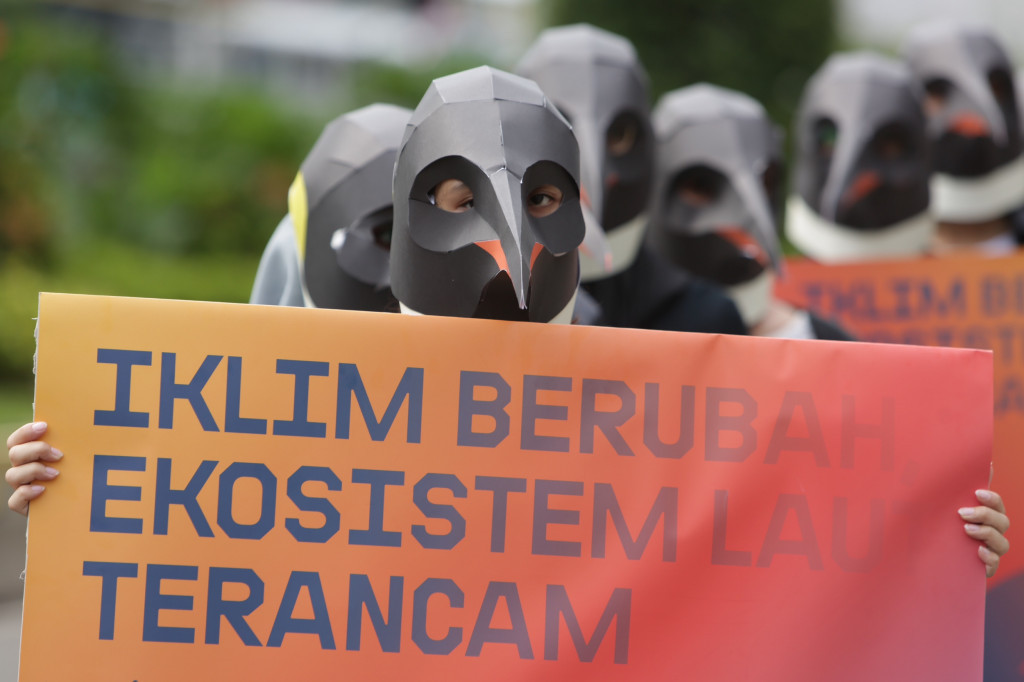 Greenpeace activists wear penguin costumes and take action and hold signs reading 'Iklim berubah, ekosistem laut terancam' (Climate is changing, the ocean ecosystem is threatened) during a protest in Jakarta on Feb. 9, 2020. The protesters urge the government to participate in the International Ocean Treaty to impose protection against marine animals and ecosystem amid the climate crisis. (JP/Wendra Ajistyatama)
Greenpeace activists wear penguin costumes and take action and hold signs reading 'Iklim berubah, ekosistem laut terancam' (Climate is changing, the ocean ecosystem is threatened) during a protest in Jakarta on Feb. 9, 2020. The protesters urge the government to participate in the International Ocean Treaty to impose protection against marine animals and ecosystem amid the climate crisis. (JP/Wendra Ajistyatama)
I
n recent years, political leaders, governments and multi-lateral organizations have strongly affirmed positive contributions made by nongovernmental organizations (NGOs) in addressing severe human needs, especially in contexts adversely affected by COVID-19 or political unrest.
Contributions from individuals and institutional donors seem to be on the uptrend, and there is a surge in humanitarian programming activities on the ground. However, the brutal truth lies in the fact that NGOs are increasingly having to operate in contexts that place greater constraints on our staff and operations than ever before.
Since 2014, Feb. 27 has been observed as World NGO Day. It is a tribute to all non-governmental and not-for-profit organizations and employees, and it seeks to recognize the immeasurable contributions to human society, even in the most difficult circumstances. Today, as we continue to call for greater cooperation between NGOs and the private and public sectors in taking on some of the world’s greatest humanitarian challenges, it is also timely to shed light on the increasing contextual limitations faced by NGOs, and consider how we could all work together towards this higher calling.
As a result of the pandemic, 58 million more people are expected to move below the poverty line in Southern Asia and sub-Saharan Africa alone. Additionally, a report last year estimated that the global NGOs and charities market would shrink by 0.9 percent from a high of US$255.71 billion in 2019 to $253.34 billion in 2020, mainly due to the lockdowns and restrictions imposed by various countries, following the outbreak of the COVID-19 pandemic and the severe global economic downturn.
This is despite a projection that donor engagement is on the rise, and total donor numbers are forecast to reach 2.5 billion by 2030. While an estimated 10 million NGOs exist worldwide, the shrinking operational space and human capacity which we experience is less accounted for.
Rising levels of ethnic, religious, social and political polarization across the globe have problematized the humanitarian crises which NGOs seek to address. Here, in the Asia Pacific, the most disaster-prone region, where we also have the highest number of refugees and more than half of the world’s most vulnerable people, the challenges related to pandemic transmission in densely populated countries, the emergence of strong majoritarian influences and impact of military coups have led to a diminished role for NGOs, while humanitarian issues have exploded.
In many cases, the polarization of political views makes it near-impossible to work out collaborative solutions to alleviate global, regional and local problems of poverty, climate change, inequality, delivery of public health and education services, and social injustice. At times, restrictions are imposed as a reaction to combative and strident advocacy action by NGOs, or as a result of mistrust.
Recent surges in nationalism in some contexts not only reject the much-needed foreign aid, they also vilify NGOs whose work is funded by international sources. Any form of demonstration by citizens in which NGOs participate, be it against flawed public policies or projects having severe environmental or social impact, is commonly sanctioned as fomenting social unrest.
In some contexts, human rights activism is outlawed, and the release of research publications that seemingly place countries in a “bad light” are perceived as ill-motivated actions. Even in areas where NGOs exercise the international humanitarian principles of “humanity, impartiality, neutrality and independence”, our staff and partners are not spared from harassment, threats, physical attacks, kidnappings and deaths.
Several countries in the Asia Pacific region are testament to these realities which NGOs face across the globe.
On World NGO Day, it is important for us to reflect on the vital role that NGOs play today and in the future. As a society, we must consider and accord the crucial space that NGOs need to occupy, restrictions notwithstanding, in critical areas such as disaster relief, health and nutrition, education, gender equality, social inclusion, safeguarding, livelihoods and climate change, mitigation, shelter and protection for the world’s most vulnerable children and communities.
Given that trust deficits with governments could cause undue disruptions, it is imperative that we continually maintain an open dialogue to rebuild good faith and foster trust. NGOs would also benefit from moving toward persuasive public engagement as partners seeking to achieve well-defined and measurable common goals, especially in the areas of sustainable development.
Rather than focusing on who or what is right or wrong – we need to continuously bring to center stage what should matter – the well-being of the most vulnerable children and communities – in our midst.
We need to constantly strive toward our calling as gap-fillers and catalysts in society. However, the ultimate responsibility to citizens remains with elected governments. This demands that we work closely with public authorities at all levels – local, provincial and national, and seek to integrate our programs with government plans. It is also critical that we keep our own houses in order, ensuring that we manage our organizations and programs in ways that reflect the highest standards of corporate governance and financial accountability.
Finally, it is critical for us to remain politically neutral and independent at all times, always working towards stability and peace, and never allowing our efforts to be used by other persons or groups to further their political agenda.
***
The writer is regional leader of South Asia and Pacific, World Vision International



